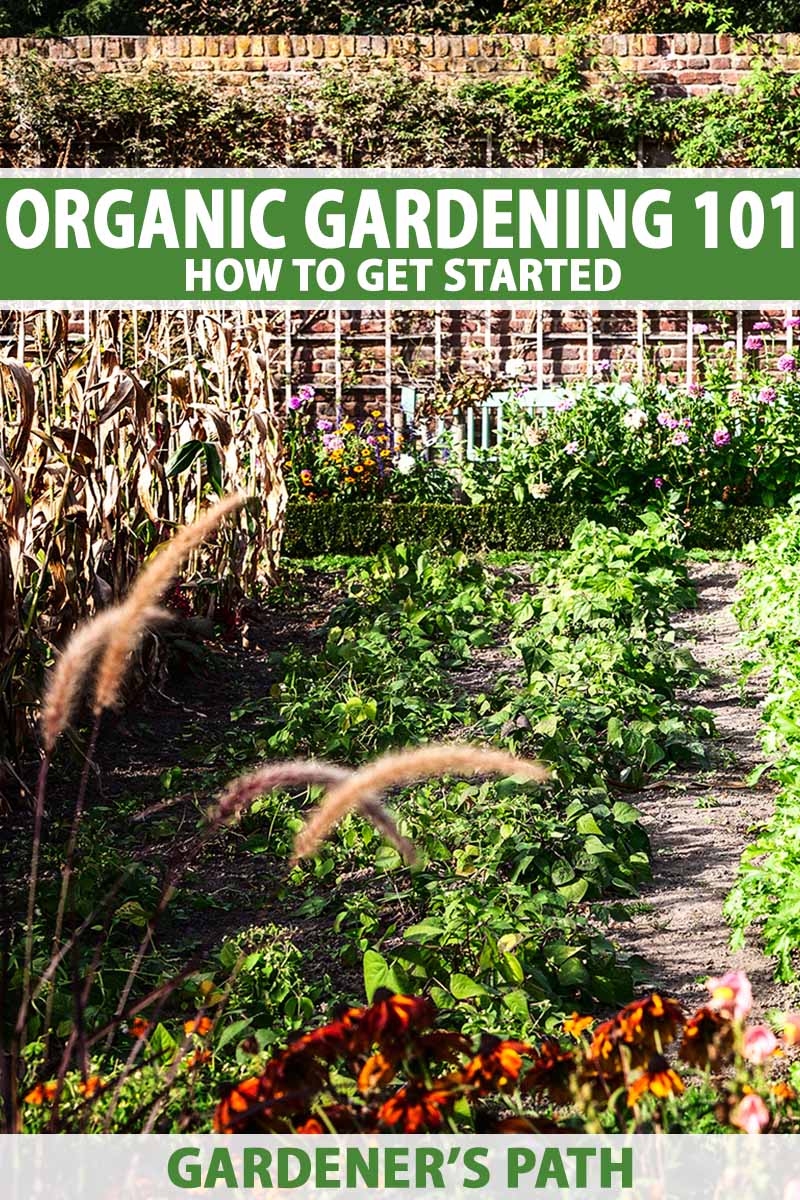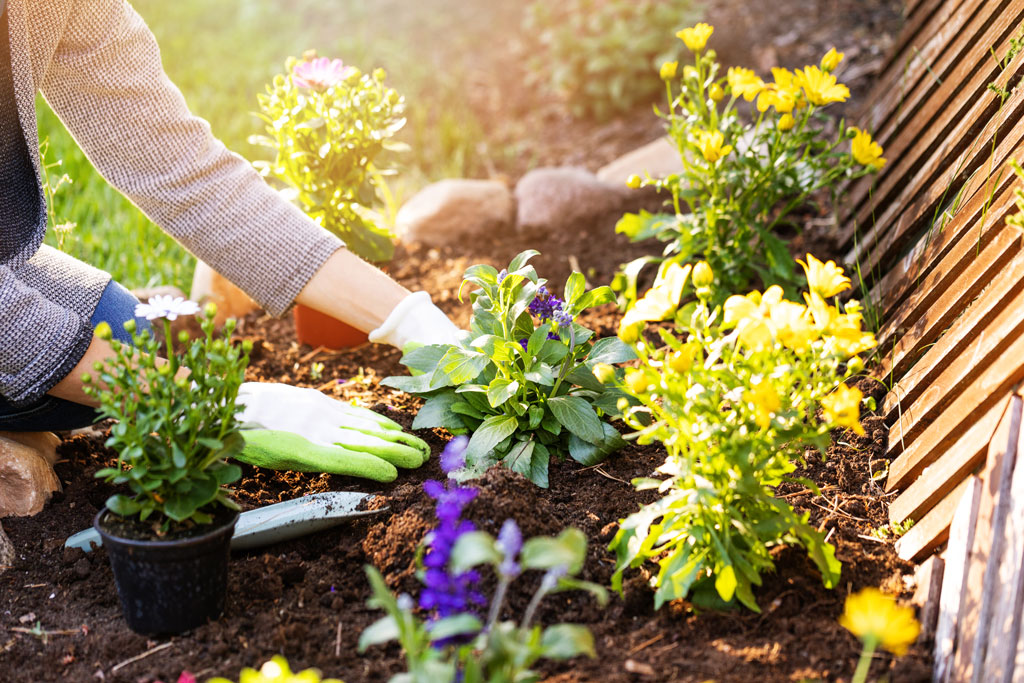How to Start Organic Gardening: Beginner Methods

Are you ready to dive into the world of organic gardening? Imagine transforming your backyard into a lush, chemical-free oasis where you can grow your own fresh, nutritious produce. Organic gardening is not just a hobby; it's a lifestyle that promotes sustainability, health, and a deeper connection with nature. Whether you're a seasoned green thumb or a complete novice, this guide will walk you through the essential steps to start your organic gardening journey. Let's get our hands dirty and explore the wonderful world of eco-friendly gardening!
Understanding Organic Gardening
Organic gardening is all about embracing natural, chemical-free methods to cultivate healthy plants. It's about working with nature, not against it. By avoiding synthetic fertilizers, pesticides, and herbicides, you create a healthier environment for both your plants and the ecosystem.
What is Organic Gardening?
Organic gardening is a sustainable approach to growing plants that focuses on using natural materials and techniques. It emphasizes the use of compost, organic fertilizers, and beneficial insects to maintain soil health and control pests. This eco-friendly method not only produces healthier plants but also contributes to a cleaner environment.
Benefits of Organic Gardening
- Healthier Produce: Organic fruits and vegetables are free from harmful chemicals, making them safer and more nutritious.
- Environmental Sustainability: Organic practices reduce pollution and promote biodiversity.
- Cost-Effective: Over time, organic gardening can save you money by reducing the need for expensive chemical products.
- Personal Satisfaction: There's a unique joy in growing your own food and knowing exactly where it comes from.
Getting Started: Essential Tools and Supplies
Before you start digging, it's important to gather the right tools and supplies. Think of it like assembling a painter's palette—you need the right brushes and colors to create a masterpiece.
Basic Tools
- Gloves: Protect your hands from dirt and thorns.
- Trowel: Essential for planting and digging.
- Rake: For leveling soil and removing debris.
- Watering Can: To keep your plants hydrated.
- Pruning Shears: For trimming and shaping plants.
Organic Supplies
- Compost: Rich in nutrients, compost is the backbone of organic gardening.
- Organic Fertilizers: Made from natural materials like bone meal, fish emulsion, and seaweed.
- Mulch: Helps retain moisture and suppress weeds.
- Beneficial Insects: Like ladybugs and praying mantises, which help control pests naturally.
Choosing the Right Plants
Selecting the right plants is crucial for a successful organic garden. Just like choosing the right ingredients for a recipe, the right plants can make or break your garden.
Considerations for Plant Selection
- Climate: Choose plants that thrive in your local climate.
- Soil Type: Different plants prefer different soil conditions.
- Space: Ensure you have enough room for your plants to grow.
- Sunlight: Pay attention to how much sunlight your garden receives.
Popular Organic Plants
- Vegetables: Tomatoes, lettuce, carrots, and peas are great for beginners.
- Herbs: Basil, mint, and rosemary are easy to grow and add flavor to your meals.
- Flowers: Marigolds, nasturtiums, and calendulas are not only beautiful but also help repel pests.
Preparing Your Soil
Healthy soil is the foundation of a thriving organic garden. Think of it as the canvas upon which you'll paint your garden masterpiece.
Testing Soil pH
The pH level of your soil affects how well plants can absorb nutrients. Most plants prefer a pH between 6.0 and 7.0. You can test your soil's pH using a simple kit available at garden centers.
Improving Soil Quality
- Composting: Adding compost to your soil improves its structure and nutrient content.
- Mulching: A layer of organic mulch helps retain moisture and suppresses weeds.
- Crop Rotation: Rotating your crops helps prevent soil depletion and pest infestations.
Organic Pest Control
Pests can be a gardener's worst nightmare, but with organic methods, you can keep them at bay without resorting to harmful chemicals.
Natural Pest Control Methods
- Beneficial Insects: Attract beneficial insects like ladybugs and lacewings, which feed on pests.
- Companion Planting: Planting certain plants together can deter pests. For example, marigolds repel nematodes.
- Organic Pesticides: Use natural pesticides like neem oil, diatomaceous earth, and insecticidal soap.
Preventive Measures
- Healthy Soil: Strong, healthy plants are less susceptible to pests and diseases.
- Regular Inspection: Check your plants regularly for signs of pests and address issues promptly.
- Crop Rotation: Rotating crops helps break the life cycle of pests and diseases.
Watering and Maintenance
Proper watering and regular maintenance are key to keeping your organic garden thriving. Think of it as nurturing a living, breathing ecosystem.
Watering Techniques
- Deep Watering: Water your plants deeply but less frequently to encourage strong root growth.
- Mulching: A layer of mulch helps retain moisture and reduces the need for frequent watering.
- Drip Irrigation: A drip irrigation system delivers water directly to the roots, minimizing waste.
Regular Maintenance
- Weeding: Regularly remove weeds to prevent them from competing with your plants for nutrients and water.
- Pruning: Prune your plants to encourage healthy growth and remove diseased or damaged parts.
- Composting: Continuously add compost to your soil to maintain its fertility.
Conclusion
Starting an organic garden is a rewarding journey that connects you with nature and provides you with fresh, healthy produce. By embracing natural, chemical-free methods, you're not only nurturing your plants but also contributing to a healthier planet. Remember, gardening is a learning process, and every mistake is an opportunity to grow. So, grab your gloves, get your hands dirty, and enjoy the fruits of your labor. Happy gardening!
FAQs
What is the best time to start an organic garden?
- The best time to start an organic garden depends on your climate and the plants you want to grow. Generally, spring is a great time to start, but you can also plant cool-season crops in the fall.
How can I make my own compost?
- You can make your own compost by combining organic materials like food scraps, yard waste, and manure. Layer these materials in a compost bin, keep them moist, and turn the pile regularly to aerate it.
What are some common organic pesticides?
- Common organic pesticides include neem oil, diatomaceous earth, insecticidal soap, and spinosad. These are derived from natural sources and are less harmful to the environment.
How often should I water my organic garden?
- The frequency of watering depends on your climate, soil type, and the plants you're growing. Generally, water deeply once or twice a week, ensuring the soil is moist but not waterlogged.
What are some common mistakes to avoid in organic gardening?
- Common mistakes include overwatering, neglecting soil health, not rotating crops, and using too much fertilizer. Regularly inspect your garden and address issues promptly to keep your plants healthy.


0 Response to "How to Start Organic Gardening: Beginner Methods"
Post a Comment